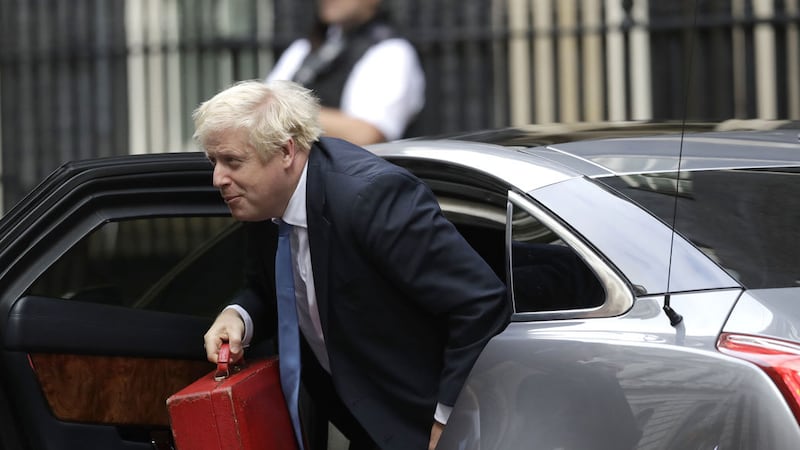While nationalist Ireland's enjoyment at Britain's political difficulties is predictable and, to some extent, understandable, it tends to overlook the situation on our own island.
As we feast with bemusement on Brexit-related developments across the Irish Sea, we have yet to recognise what the Brexit soap-opera has done to Ireland. Nationalists have convinced themselves that it will be a step closer to a united Ireland, but we might more usefully analyse it as a re-run of the Battle of the Boyne.
The original battle was between two unelected rulers: an English Catholic king supported by Irish Catholics and a Protestant European monarch, supported by Irish Protestants.
In a slightly different twist, today's version of the Boyne sees the main Catholic party here support the unelected EU President, Jean Claude Juncker, while the dominant Protestant party vows allegiance to the unelected Boris Johnson. Like 1690, the war between the two rulers is being fought largely in Ireland over who should rule England.
You may reasonably disagree with that comparison and prefer instead to poke fun at the British political system. You have a point in that the religions of the two unelected rulers today are less clear-cut than in 1690. Johnson was baptised a Catholic, but became an Anglican, although some might argue that he now appears to be a member of the Church of Egocentrics, Eccentrics and Spoiled Political Children.
Juncker had a Catholic education and the EU is firmly supported by the Catholic Church. So there are hints of Christian divisions in the current Brexit war. Indeed, one Daily Telegraph columnist has suggested that Brexit is a second Reformation, with Britain departing from Catholic-dominated Europe. (You may wish to seek a comparison between Boris Johnson and Henry VIII, but this column could not possibly comment.)
So there are certainly echoes of 1690 in the Brexit soap opera. Those echoes will grow louder during the expected British general election, which may well be the most sectarian on record, with at least some constituencies fielding "unity" candidates. (That's sectarian unity, not cross-community unity.)
Sinn Féin is "open" to aligning with other pro-Remain parties. It describes North Belfast as a "key battlefield" (sounds like the Boyne?) which, if Sinn Féin were to win, would "strike an almighty blow against Brexit" (and in favour of Jean Claude Juncker).
But the party's abstentionist policy presents difficulties. Should it support non-SF "unity" candidates who would attend Westminster if successful? If so, will Sinn Féin selectively abstain from abstentionism in certain areas and allow proxy attendance at Westminster?
The DUP will have less bother in achieving unionist unity, since the UUP recognises its position in unionism's electoral hierarchy. So Brexit will raise the standard sectarian stakes as we divide our loyalties between union with Britain and union with Berlin.
(Most nationalists are still in denial about Ireland's political union with 27 other states, some of which have prime ministers much worse than Boris Johnson. Hungary's Viktor Orbán, for example, has criminalised homelessness, stifled a free press, denied food to asylum seekers and forced the Central European University to leave the country - while enjoying the support of the Catholic Church. What's the difference in union with him and union with Boris - and whatever happened Irish independence?)
So, as we line up to support either Johnson or Juncker, do you really believe that either of them cares in the slightest for ordinary people here? Juncker has already undermined Leo Varadkar's pledge that there will be no checks on the border in the event of a no-deal Brexit, but the EU president remains the king of Irish nationalism.
By supporting either the UK or the EU in this war of words, we are doing what we Irish have done for centuries. We fought other countries' wars and lost our own.
This time we are fighting the political version of the Battle of the Boyne. Like the original battle, the consequences of this one may live with us for centuries.








